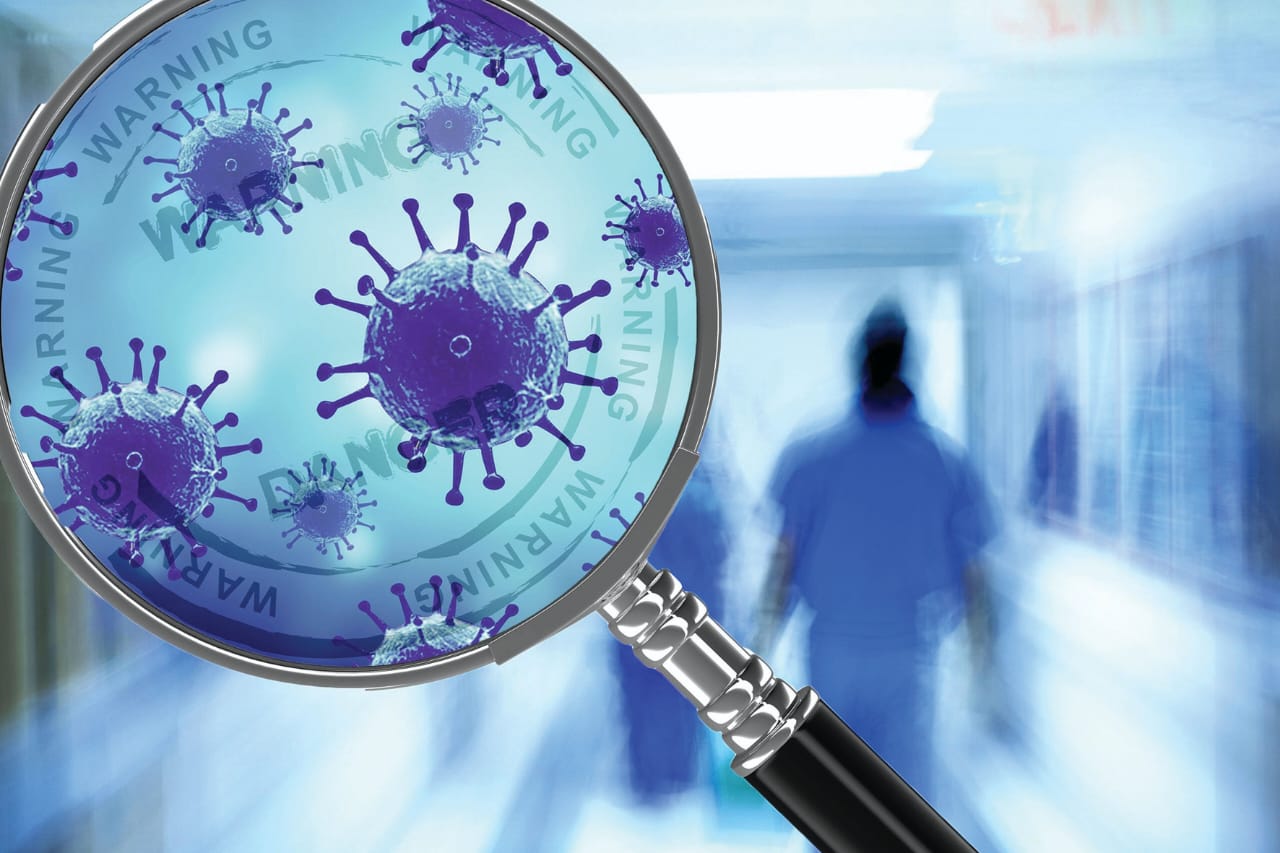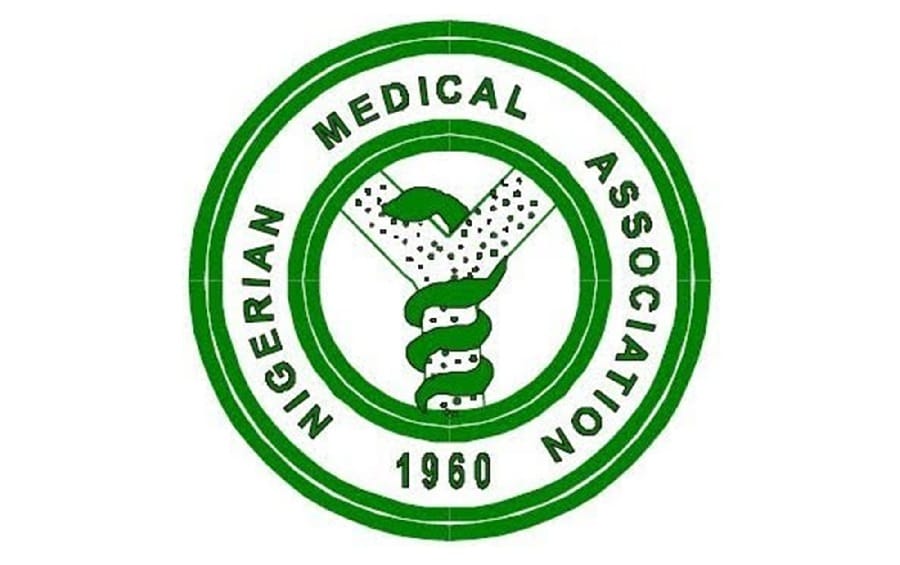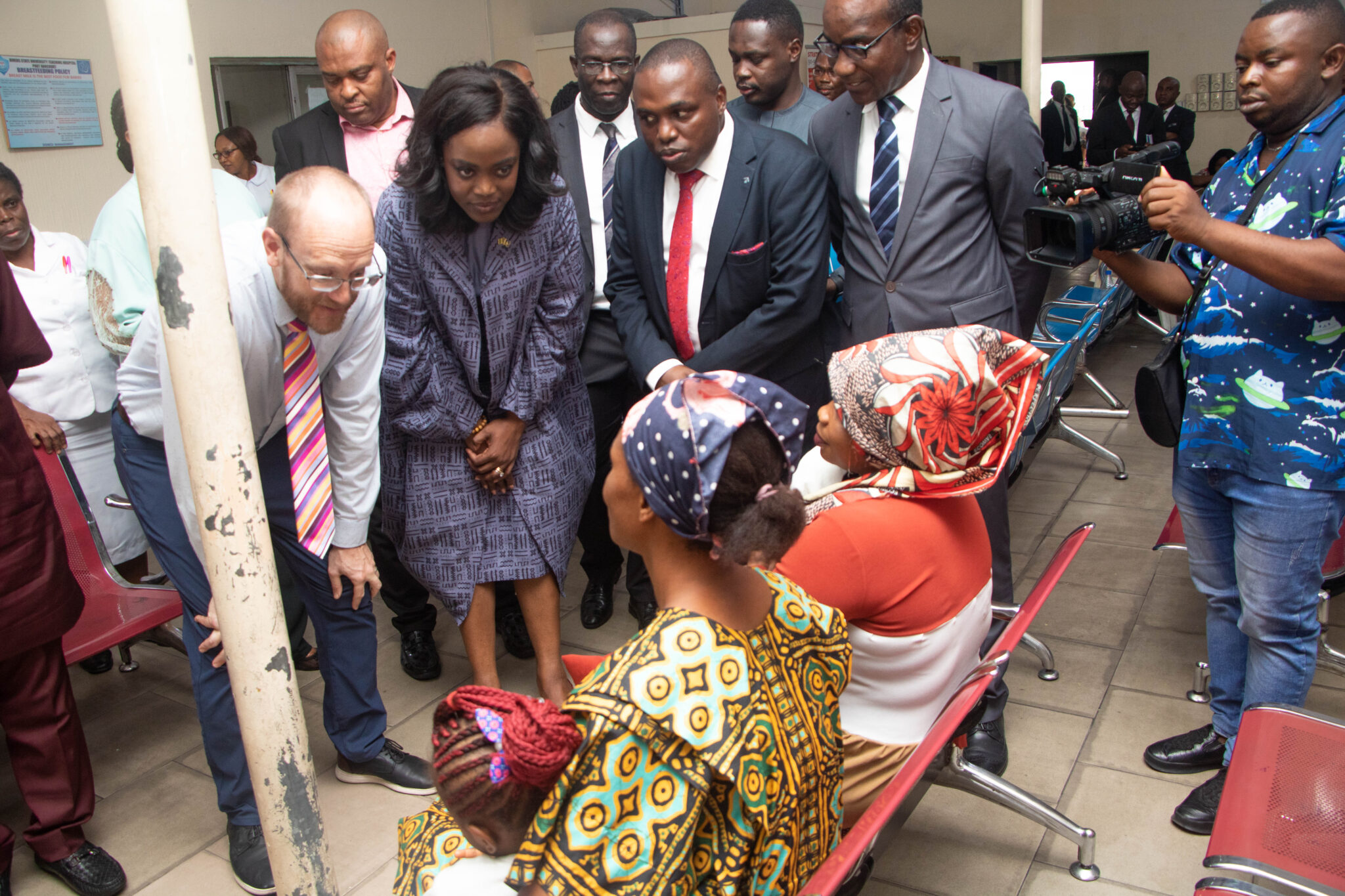By Ojoma Akor
Blessing Adaji, 41 , had a spine surgery in a hospital but later went home with a Urinary Tract Infection ( UTI).
She recalled that there were very few hand wash stations and that no running water for hours on end.
” The health workers sometimes go to a central one outside the wards and consulting rooms to wash their hands.The toilets and bathrooms were also in a terrible state,” she narrated .
Danjuma Musa said he cringed with fear when some patients began to come down with illnesses that were not related to what brought them to a primary health care center that he was hospitalized after an accident.
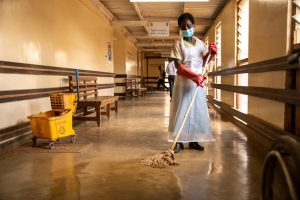
He said he had observed that some of the nurses and other health workers at the facility were not meticulous about getting infected with diseases nor transmitting them patients.
He said, ” I often hear them complaining of no water and soap, no sanitisers cleaning supplies and no Personal Protective Equipment ( PPE).”
A health worker who carved anonymity said that some heath workers have poor knowledge about IPC while others were non compliant because of lack of equipment and other materials.
He further said that IPC funding is not usually prioritized by some heads of health facilities at rural levels.
Hospital-acquired infections remain one of the major public health challenges, and cause of preventable illnesses and death among patients and healthcare providers.
Also known as HealthCare-Associated Infections (HCAIs) , they are infections that patients acquire while receiving treatment for other health conditions within the health facility.
There is a paucity of data on HCAIs in Nigeria.
Experts say effective Infection Prevention and Control ( IPC) plays a critical role in preventing hospital-acquired infections.
According to Rita Ifeyinwa Okonkwo, the Global Health Security Lead and Research Administrator at the International Research Center of Excellence (IRCE), Institute of Human Virology Nigeria ( IHVN), most hospital-acquired Infections (HAIs), are preventable and can be prevented by up to 70% through effective IPC practices.
She said there are no records of
hospital-acquired Infections
prevalence in Nigeria but that research in other countries show that in low-and-middle-income countries like Nigeria, the prevalence ranges from 5% to 15%.
She added that this is quite significant considering what this means to patients.
“It prolongs their stay in hospitals, worsens their conditions, and is a source of morbidity and mortality in patients,” she said.
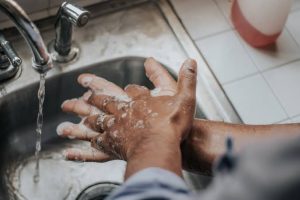
A systematic review and meta-analysis of the prevalence and types of health care associated infections in Nigeria, done by Chinemerem Daniel Onwuliri and other researchers showed that the pooled prevalence of HCAIs in Nigeria was 15.75% and the commonest type was urinary tract infections followed by surgical site infections and skin and soft tissue infection.
1, 899 articles were searched, and the researchers included 16 studies involving 86, 772 participants.
The research also revealed that the commonest organisms reported were Proteus species and Staphylococcus aureus, followed closely by Escherichia coli, Klebsiella and Pseudomonas. One study reported on multidrug resistance.
Causes of hospital-acquired infections
Okonkwo said hospital-acquired infections are caused by viral, bacterial, and fungal pathogens, with bacterial infections recorded as the most prevalent.
She said, ” These organisms are spread through person-to-person contact due to suboptimal infection prevention and control (IPC) practices among healthcare workers. Most HAIs are preventable and can be prevented by up to 70% through effective IPC practices. Several practices have been identified as the standard of practice in IPC.
“Performing hand hygiene when recommended, use of correct protective equipment when attending to patients, proper waste management practices, ensuring sterilization and injection safety practices are some of the recommended practices to prevent HAIs.”
State of IPC across health facilities in Nigeria
Findings reveal that poor funding for IPC at the national and sub- national levels contribute to dearth of requisite equipment and materials, as well as non compliance to protocols. The poor IPC practices then predispose health care workers and patients to hospital-acquired illnesses and infectious diseases.
Asked about the state of measures against hospital-acquired infections, across public and private
health facilities, Okonkwo said , “In Nigeria, there are poor practices regarding infection prevention and control mainly due to the inadequate capacity of facilities to implement the recommended standard practices with regard to infection prevention and control.”
She said, “Capacity is a major area, there is a significant under-investment in capacity building and significant knowledge gap among healthcare workers in core knowledge areas in standards of practice – the COVID-19 pandemic highlighted this gap.
“The pandemic highlighted the need to strengthen this capacity among healthcare facilities. We saw how widespread the COVID-19 infections were in healthcare facilities. During the pandemic, we recognized how a majority of public and private hospitals were closed down because of the outbreak of infections in hospitals.
“This shows that the capacity to rapidly identify and prevent infection spread within the facility was a significant challenge and gap during the pandemic.”
Way forward
On what Nigerians should do regarding prevention of hospital-acquired infections, Okonkwo said, “one of the things we started doing in the last few months is to strengthen patient sensitization as patients have a role to play in reminding healthcare workers to comply with hand hygiene. We are enlightening patients on the moments for hand hygiene.

“WHO has identified critical moments where healthcare workers must perform hand hygiene; before touching the patient, before any clean/aseptic procedure, after body fluid exposure risk, after touching a patient, and after touching a patient’s surroundings.
“The expectation is that the patients are well informed, they look out for those opportunities, and ensure that their healthcare providers comply with hand hygiene practices and waste management (using new needles, wearing appropriate PPE when they come in contact with them, etc).
“We are making progress but there’s still a lot to be done. Here in Nigeria, not many patients are confident to ask for their rights. We need continuous sensitization for both the patients and healthcare providers. The big success is that we have started and will continue to promote this practice until it is internalized and institutionalized in our healthcare facilities as a standard of practice. ”
Experts also said there is need for improved funding for infection prevention and control in other to increase access to supplies, capacity building and implementation of the programme generally at national and sub- national levels.
The National Coordinator of the Epidemic Ready Primary Health Care (ERPHC) Project , Dr Moreen Kamateeka, said infection prevention and control is the cornerstone of health security, and that everything done in healthcare institutions without it puts everyone at risk.
She called for the timely release of the appropriated funds for IPC in the 2025 budget saying it would help strengthen the implementation of IPC in the country.
Dr Muzzammil Gadanya, an health-care epidemiologist from the IPC Unit of NCDC said IPC helps ensure that avoidable infections do not happen.
He said it is also important to make funding available to enable hospitals purchase critical IPC supplies.
He added that training healthcare workers, also contributes to system strengthening for IPC.
Also a study on ‘Practices of Infection Prevention and Control among Primary Healthcare Workers and Associated Factors’ by Aniekanabasi Jonathan Okon of the Department of Public Health, University of Calabar, Nigeria, and other researchers revealed that major factors perceived by healthcare workers (HCWs) as influencing compliance with IPC guidelines were: lack of resources and inadequate training.
The findings are indicative of the need to scale up the provision of IPC resources and training to improve practice and prevent hospital -acquired infections.


